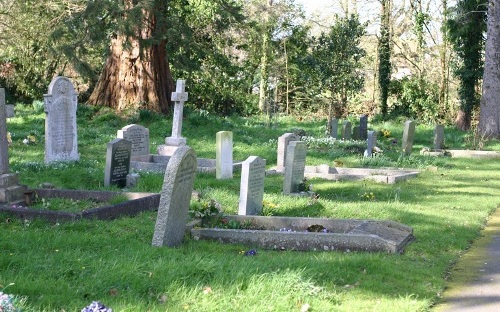Now that I have checked (as I needed to know the answer for this post), I have been here for five and a half years, not six as I often tell people.
You’d have thought that, after all these years, there wouldn’t be that anything that would be so unusual or different. But you’d be wrong. There are still things I stumble across that I find interestingly, frustratingly or horrifyingly different.
I’ve always had some sort of fascination with death. It’s the same sort of fascination that I have with overly-large breasts. I don’t want to physically experience it and, yet, there it is, in full view, so to speak.
I thought I would be dead by the time I was 42. This was something I thought of as a kid or teenager. 42 happened to coincide with the year 2000. It was a totally irrational thought, of course, but, nevertheless, I was convinced. It didn’t worry me. It was too far away and, by then, I figured, I would have had quite enough of living.
As you get older, with death no longer creeping but approaching at something closer to the speed of light, one wishes for ‘just a bit more’. I suppose it’s like money really – the more you have the more you want it. However, I am aware that my time on this earth is more limited now than it was 30 years ago when, even if my imminent death (42, remember) was coming, it still seemed ‘a lifetime’ away.
I see Rufus and wonder at how he has lived so long. I see his frail body and picture me in that state. Well, sort of. I am pragmatic in that I have smoked for so long and so heavily that I doubt, very much, if I would get to that state. We shall see. Stranger things happen. Everyone seems to have a story of someone who smoked all their life and still lived to be 95 or something. If we are honest though, these are exceptions. If I am also honest, I always think I shall be one of those exceptions as I’m sure most people do.
So, when F told me that his cousin (or uncle – it’s quite difficult to work out the correct relationship) had dropped dead with a heart attack at the age of 58, I couldn’t help but blurt out that he was just a little older than me. Don’t get me wrong, it doesn’t make me worried. In some way it amazes me that I am still here.
I’m sure I would be exactly the same as Anthony Hopkins in Meet Joe Black. I would be asking Father Time or God or whoever if I couldn’t just have another few years …….. or a year …… or, if I really DO have to go soon, couldn’t it just wait another 6 months? OK then – another month will be fine.
But this wasn’t really what I wanted to talk about. The guy had died. He was close family and, so, F went to the funeral, of course. And, although I was aware of how different things are here, I still find it all quite amazing.
The British have this propensity to party, it seems. Wetting the babies head; the christening; birthday parties; engagement parties; weddings; special anniversaries and, finally, wakes. In each case it gives the opportunity for families to reunite, have some alcohol and, quite possible, do some of that ‘only at weddings’-style dancing – to some of the worst music in the world.
But, mainly, it is a sanctioned ‘getting drunk’ time.
The parties are almost more important than the event itself. Certainly, in the case of a funeral, the party afterwards, to me, is the ‘best bit’. I don’t mean to be disrespectful. Let me explain.
One assumes you go to a funeral because you knew the person. Probably (almost certainly now that they are ‘gone’) you quite liked the person. And the funeral makes you take stock of the way that the person had touched your life: the funny bits, the sad bits and the many other ‘bits in between’. The funeral is your chance to say ‘goodbye’ even if the idea of that is quite preposterous, since ‘they’ can’t hear you. The funeral is really for your sake, not theirs. We all know that and accept that this is true. The funeral is sad and everyone whispers to each other as if, by speaking at a normal level you would wake someone – even the dead.
It’s stressful, particularly if you loved the person; if it was a close relative – an uncle, cousin, parent or, worst of all, your child, however old they may be. There might be some things said at the funeral – some speech by the vicar (who, in all probability never knew the deceased but has taken instruction from the surviving relatives) and or by a relative which may make everything excruciatingly painful – one can’t help but remember the truly dreadful speech given by Lord Althorp at Diana’s funeral – it is, after all, not really the best time for name calling.
Then it’s all over and the coffin has been put in the ground or been silently slid away behind some curtain to be burnt to cinders later. Either way, it’s all over. I always think: ‘Is that it?’.
And then there’s the party. The party, I think is the most important part. There is a release now that it’s all over and done with. It’s final. It’s done. Now you can get back to the business of living – and, in the case of the party, remembering the person – remembering the good times, the funny times, learning about things you didn’t even know about.
They were loved. They were good. You will miss them but they are still there, brought to life again by the stories and the laughter and the general ‘thinking about them’. And, maybe, that’s one of the reasons that my maternal grandfather has never really left me – I didn’t have that experience, that opportunity. To be honest, for the funeral wakes that I’ve been to, you didn’t really want them to end – you didn’t want to forget the person, to let go.
Not so here, it seems. The funeral is, I guess, more or less the same but afterwards, from what I understand, everyone just leaves! For me that would be an awful thing. It’s almost as if you would miss out on understanding them better, on reliving their past through others.
No, it doesn’t matter how much I try and understand, I just don’t get it. The party is the celebration of a life. Without which it is almost disrespectful – as if that person meant nothing.
Of course, having been brought up in the UK and our way being ‘the norm’ perhaps I am being unkind. I don’t mean to be but I hate the idea that if I were to die, there wouldn’t be some sort of knees-up afterwards. I would want people who bothered to come, the chance to enjoy themselves and celebrate my life. For that’s what it is really all about. The celebration of the life of someone who did touch you.
Perhaps your experience is different? But I find that our ways of saying goodbye are fascinating in their differences. Tell me I’m wrong, tell me how it is with you, tell me what you want – even try to help me to understand. I am, really, fascinated by the differences.
![]()


